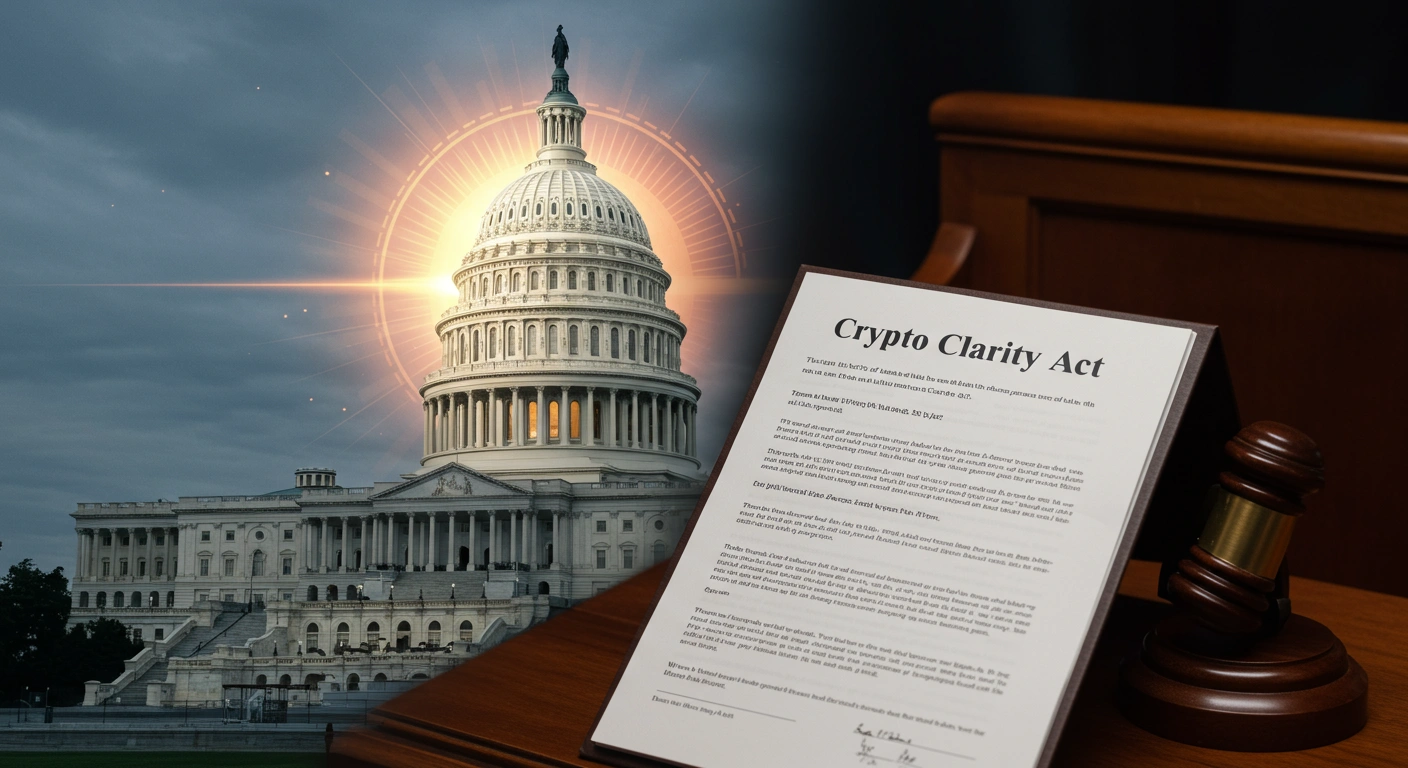The US House has ratified three ground-breaking crypto bills including the Digital Asset Market Clarity Act. This legislative sweep establishes clearer oversight and regulation for cryptocurrencies, stablecoins, and rejects central bank digital currencies, shaping the next chapter in American digital finance.
The digital currency arena faces a turning point as the U.S. House of Representatives greenlights three critical pieces of legislation, marking a significant step toward comprehensive crypto regulation.
The spotlight centers on the Digital Asset Market Clarity Act (CLARITY Act), designed to decisively define who regulates crypto markets and how.
With a commanding 294-134 vote, the CLARITY Act clears the House, accompanied by passage of the GENIUS Act, focused on stablecoins, and the Anti-CBDC Surveillance State Act, which opposes central bank digital currencies (CBDCs).
These actions cement the ambitions of the Republican-led “Crypto Week,” aiming to establish strong regulatory frameworks before the congressional recess in August.
Crypto Week Introduces Fundamental Change to Crypto Oversight
The CLARITY Act, proposed only weeks ago, confronts the long-standing uncertainty over whether the Securities and Exchange Commission (SEC) or the Commodity Futures Trading Commission (CFTC) should oversee cryptocurrencies.
It declares exclusive jurisdiction for the CFTC over crypto transactions and mandates registration for exchanges, while exempting certain mature blockchain-based digital commodities from securities registration.
Republican lawmakers have pushed for swift adoption of the bill, viewing it as essential for innovation coupled with investor protection. Nearly 80 Democrats supported the CLARITY Act, indicating some bipartisan consensus despite overall partisan tensions surrounding digital asset policy.
However, opposition remains vocal. Critics argue these bills may open loopholes threatening financial stability reminiscent of the 2008 crisis and exacerbate conflicts of interest linked to influential crypto players tied to the current administration.
Stablecoin Regulation and CBDC Resistance Shape Legislative Focus
Alongside the CLARITY Act, the GENIUS Act passed overwhelmingly, aiming to regulate stablecoins—digital currencies pegged to fiat money to ensure stability—crucial for seamless crypto trades.
The bill, already approved by the Senate, is expected to reach the president’s desk soon and promises to inject clarity into an historically ambiguous stablecoin regulatory landscape.
In contrast, the Anti-CBDC Surveillance State Act, which calls for blocking development of a U.S. central bank digital currency, encountered closer voting margins but still passed. This bill underscores fierce resistance to digital currency forms potentially threatening consumer privacy and sovereignty.
The collective legislative moves reflect growing congressional recognition that digital assets demand a transparent regulatory regime aligned with market realities and technological progress.
These developments have triggered a wave of optimism among industry stakeholders, signaling the potential end of regulatory limbo that has long impeded innovation.
The evolving framework seeks to balance crypto regulation, market integrity, and privacy protections, shaping a foundation for U.S. digital finance’s future.
Stay updated on the latest cryptocurrency news on our homepage.
Explore more in Latest News Category.
Related reading:
Key Topics
Crypto New Live
admin@cryptonewslive.org
U.S. House Approves Key Crypto Regulation Bills
House passes CLARITY, GENIUS, and Anti-CBDC Acts, defining crypto oversight, stablecoin rules, and blocking CBDCs, marking a regulatory turning point.
